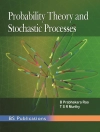In ‘Mathematical Problems, ‘ David Hilbert presents a collection of 23 unsolved problems that formed a significant part of the mathematical landscape in the early 20th century. Through a clear and concise literary style, Hilbert not only outlines these problems but also situates them within the broader context of contemporary mathematics, exploring their underlying principles and implications. The book serves as a bridge between rigorous mathematical theory and accessible challenge, embodying Hilbert’s belief in the creative spirit of mathematical inquiry. Each problem encapsulates deep mathematical concepts, inviting readers to engage critically with questions that continue to inspire generations of mathematicians. David Hilbert, a prominent mathematician of the last century, was instrumental in shaping modern mathematical thought. His conviction that mathematics was not merely a collection of results, but a dynamic field of inquiry is clearly reflected in this work. Hilbert’s influence spanned various mathematical domains, and his formulation of these problems arose from a desire to provoke thought and cultivate a spirit of collaboration among mathematicians at a time when the discipline faced rapid evolution. ‘Mathematical Problems’ is not merely a collection of riddles; it is an invitation for readers—students, educators, and mathematicians alike—to delve into the depths of mathematical challenge. By engaging with Hilbert’s problems, readers can find themselves at the frontier of intellectual exploration, inspiring both personal and professional growth in the realms of mathematical thought.
عن المؤلف
David Hilbert (1862–1943) was a renowned German mathematician, recognized worldwide for his groundbreaking contributions to various fields within mathematics, including invariant theory, algebraic number theory, and the foundations of geometry. As an eminently distinguished figure in mathematics, Hilbert is best remembered for his 1900 presentation at the International Congress of Mathematicians in Paris, where he delineated a set of 23 unsolved problems. This seminal list was published under the title ‘Mathematical Problems’ (Hilbert, 1902), and it has profoundly influenced mathematical research throughout the 20th century and beyond, guiding mathematicians in their scholarly endeavors. Hilbert’s work in establishing a formalized framework for mathematics also led to significant advancements in mathematical logic and the philosophy of mathematics. His contribution to the axiomatization of geometry is notably articulated in his book ‘Grundlagen der Geometrie’ (Foundations of Geometry), which has laid the cornerstone for modern geometric theory. Hilbert’s literary style is characterized by precision and clarity, always aiming to present complex mathematical concepts in an accessible manner. His intellectual legacy extends beyond his written works, as he has been a mentor to an entire generation of mathematicians. Hilbert’s influence persists in contemporary mathematical thought, and he is frequently cited as one of the greatest mathematicians of his time.












